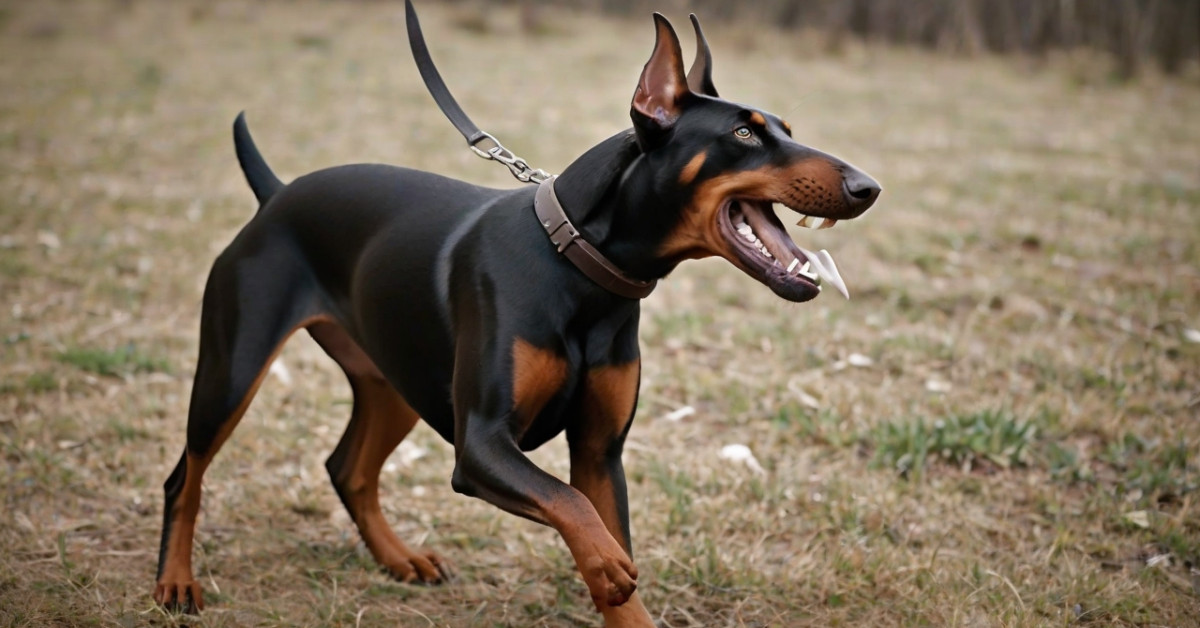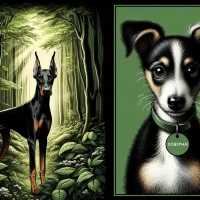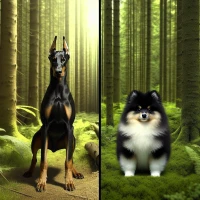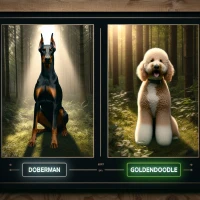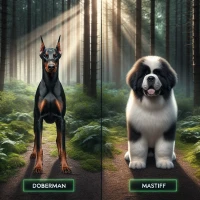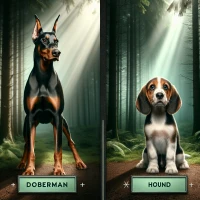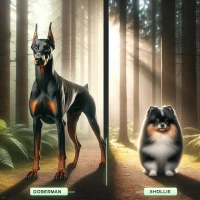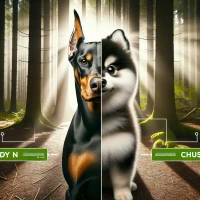Understanding the Myth: Are Dobermans Aggressive by Nature?
You know, I once met a Doberman named Duke. I was visiting a friend who had just adopted this sleek and powerful dog. As I approached, Duke stood tall, and I couldn’t help but feel a twinge of apprehension. Heck, Dobermans have this reputation, right? Aggressive, fearsome guardians. But the truth is often more nuanced than the stereotypes. My heart softened when Duke wagged his tail eagerly and nudged my hand for a pat. Not aggressive at all—just misunderstood.
The Origins of the Aggressive Reputation
Dobermans have been associated with aggressive behavior largely due to their historical role as guard dogs. Back in the 1800s, these dogs were bred in Germany by Karl Friedrich Louis Dobermann, who wanted a protector by his side during tax collection rounds. Strong, loyal, and intelligent—they fit the bill perfectly. But aggression? It often comes down to how they are raised, not some innate viciousness.
Personal Stories and Anecdotes
My cousin Tim once had a Doberman named Hera. She was the sweetest thing, always there to protect Tim’s kids as they played. Hera would play fetch like her life depended on it and was known to lick anyone who came close enough. Talk about slobbery kisses! It turns out, Hera had been socialized early, exposed to various people and situations which made her gentle and loving. It’s like what they say—behind a tough exterior, there can be a teddy bear! 🐻
Training: The Key to a Well-Behaved Doberman
Training a Doberman is crucial. These dogs are bright, curiously so, and need mental stimulation. Without it, they could develop some behavioral issues, yes, but aggression isn’t a given. Envision a young Doberman pup—boundless energy and a will to learn. Socialization and consistent training teach them how to navigate the human world gracefully. Dogs crave guidance, and a well-led Doberman is nothing short of a loyal confidant.
Misunderstanding Dobermans: Facts vs. Fiction
Did you know that Dobermans actually rank high in intelligence among dogs? Yep! Quick learners, they are. This intelligence can be channeled into obedience, making them excellent service dogs. When folks label them as aggressive, it’s often a blanket statement not supported by a full understanding of their nature. Each dog is individual, shaped by its environment and experiences. Speaking of facts, did you know that Dobermans are known for their loyalty? When treated with love and respect, they become unwaveringly devoted companions.
Emotional Bonds and Experiences
Now, let’s talk about feelings! When you’ve got a Doberman in your life, it’s like adding a layer of joy and security rolled into one. I remember the warmth of Duke’s fur as he cozied up on a chilly evening—it’s like having a living, breathing heater. Their strong build belies a gentle heart especially when they’re bonded with their family. Oh, and if you’ve ever heard the soft, rhythmic sound of a Doberman snoring—it’s oddly comforting, perhaps music to a canine lover’s ears.
Personal Reflection
Overall, while society often paints Dobermans with a broad brush of aggression, the real story often lies in the hands of the owner. It’s about lessons, love, forming the right environment for them to thrive in. At the end of the day, the connection between humans and these elegant creatures is profound. Thanks for reading and remember: Love 'em, train 'em, and they’ll show you just what loyal sweethearts they can be. Keep smiling! 😊
